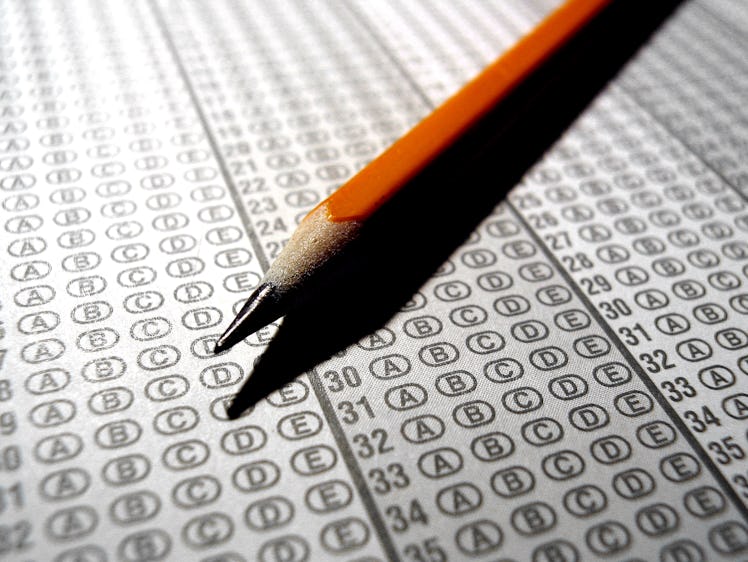
This Big Change To The SATs Has Twitter Calling For More
I never want to see those Scantrons again, TBH.
For nearly a century, the SATs have been a staple in the admissions process for hundreds of colleges and universities all over the United States. The test itself is practically a pop-culture icon — countless books, movies, and shows have been written on it, and almost everyone who knows about it understands it comes with high stakes. But amid the recent shift to online learning, standardized testing is also undergoing some big changes: The SATs are going digital, and Twitter's got a lot to say about it.
“The digital SAT will be easier to take, easier to give, and more relevant,” Priscilla Rodriguez, vice president of College Readiness Assessments at College Board, said in a Jan. 25 press release. “We’re not simply putting the current SAT on a digital platform — we’re taking full advantage of what delivering an assessment digitally makes possible. With input from educators and students, we are adapting to ensure we continue to meet their evolving needs.” Notably, this doesn’t mean that students are going to get to take the digital tests in pajamas from their living room — the tests will still be administered in a test center with a proctor, and can’t be taken from home.
Aside from the digital switch, the test is undergoing some other big changes: It’ll be shortened from three hours to two hours, giving students more time on each question; reading passages will be shorter and reflect a wider range of topics; and calculators will be allowed on the math section. According to College Board’s data from trial runs in November 2021, “80% of students responded that they found it to be less stressful and 100% of educators reported having a positive experience.”
However, people all over Twitter are saying these changes simply aren’t enough to keep the SATs relevant amid a turbulent digital era — especially with the exam’s controversial history. Critics have frequently alleged that standardized tests like the SAT are inherently biased, and favor affluent, white and Asian American students who can afford expensive test prep — and disadvantaging other students of color and those from low-income households. College Board, which administers the SAT, has denied that the tests are discriminatory.
Change or no, the tests may be on their way out: 80% of around 2,300 four-year colleges aren't requiring SAT scores to admit students from the graduating class of 2022, per Fair Test: National Center for Fair and Open Testing. Furthermore, from 2020 to 2021, the number of high school students taking the exam plummeted from 2.2 million to just 1.5 million. And as more colleges have ditched SAT scores from their admission requirements, the acceptance rate for students of color began to climb in 2021 and 2022.
Although standardized testing companies have made continuous attempts to update exam formats to keep the SATs “relevant” amid a rapidly shifting educational environment, Twitter may have hit the mark on the matter — a last-minute shift to a digital exam might just be too little too late.